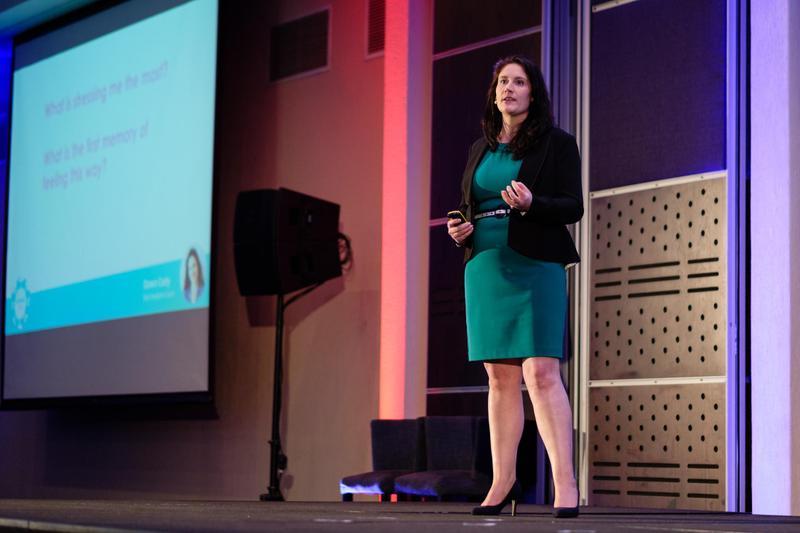Believe in Yourself
By believing in yourself you will give yourself and your environment the greatest gift you can give anyone: Your trust, confidence and security.
Being kind to yourself helps you bounce back, live healthier, and stay on track.
Self-compassion is a way of relating to yourself that does not involve harshly judging or punishing yourself for every mistake you make, or each time someone else does better than you. Research on self-compassion shows that it is associated with:
Less anxiety and depression.
-> More optimism.
-> Better recovery from stress.
-> Better sticking to healthy behaviour changes, such as exercise or diet.
Self-Compassion has three separate but related aspects:
1. Mindfulness: This offers a “meta-perspective” on our hardships, which is helping us to not exaggerate our distress and become engulfed by it. It means that you have an open, curious, non-judging attitude; and do not over-identify with negative stories about the self.
2. Self-kindness refers to: Treating yourself kindly, rather than harshly. For example, instead of being critical (I’m so disorganized! I’ll never be successful!), allow your inner voice to be supportive and warm (It’s OK that I missed the deadline. I worked hard and I’ll make it next time). This means that you can extend the same care and support to yourself that you would to a good friend or loved one.
3. Common humanity: Allow yourself to be human, to make mistakes and learn from them. Know that as humans we are not perfect, nor should we be expected to act flawlessly. Accept that we are not alone in our suffering, this comforts us with feelings of inclusivity rather than alienation.
Self-compassion or self-love may be a foreign concept for some people. This is especially true for those who were raised in abusive or unloving homes, where compassion may have been non-existent.
Self-compassion refers to a way of relating to the self—with kindness. It is not to be confused with arrogance or conceit, which usually indicates a lack of self-love.
Self-compassion is described as kindness toward the self, which entails being gentle, supportive, and understanding, rather than harshly judging oneself for personal shortcomings, the self is offered warmth and unconditional acceptance. In other words, being kind to ourselves in good times and bad, in sickness and in health—and even when we make mistakes.
Having self-compassion means being able to recognize the difference between making a bad decision and being a bad person. When you have self-compassion, you understand that your worth is unconditional.
There is an exercise I would like you to do.
1. Write down your self-critical thoughts in the second person – e., “You are such a loser. You can’t get anything right.” When you cannot think of any self-critical thoughts at this moment, try to watch yourself in the next 48 hours or so and notice these thoughts, then write them down.
2. Then write down realistic and compassionate responses to these thoughts, the way you might respond to a friend that is saying these things about themselves. Write these statements in the first person – e., “I am not a loser. I have many strengths, and I don’t have to beat myself up when I make a mistake.”
The second part of this exercise can be challenging and unexpectedly emotional for many of us. It’s often difficult to stand up to our critical inner voices – particularly when so many of us struggle with low self-esteem. Input from others is often experienced as additional criticism, and can trigger us and set off even more critical inner voices; Our responses may range from feeling victimized or overly defensive to exaggerating and needing to build ourselves up.
However, the attitude we need to adopt to enable us to stand up to our inner critic, is one that is scientifically proven to be highly beneficial to our overall mental health and well-being. That attitude is self-compassion.
Unlike self-esteem, self-compassion is not based on self-evaluation or judgement in general. Self-esteem can be problematic, because it is often depending on what we accomplish. It can rise and fall with our successes and failures and actually fuel our critical inner voice. In contrast, self-compassion involves a consistent attitude of kindness and acceptance toward ourselves as a whole.
Most people can feel some sort of compassion for themselves, because they agree that basically all human beings deserve compassion and understanding, not because they possess some particular set of traits, but simply because they are human.
If you happen to have any secret ways to believe in yourself and to love yourself, rolled up your sleeves then please, do share them with us. Come join our FREE 5 day Heal Yourself Challenge. https://www.facebook.com/groups/anxietyseries5day
Be the first to post a message!
